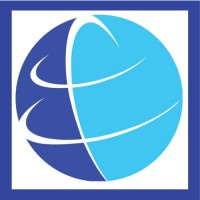Improved Visibility into Contract Management
Contracts go through several stages by the time they get fully approved and several people/roles are involved. By having an automated contract management system, companies get full visibility about at what stage the contract is held up and can analyze the progress of the contract. Automated workflows associated with SLA ensure that there are no bottlenecks and executive intervention can be provided at any stage. Along with associated metrics and analytics, companies can fully manage the contracts efficiently.
Improved Collaboration and Negotiation
Automated contract management ensures that all the people and stakeholders collaborate on the system. This avoids manual back and forth processes and helps team members to resolve issues and questions efficiently. Reviews can be done more efficiently on collaborative platforms. The negotiation process and the associated back and forth can be optimized with the collaboration platform. Ability to track changes, automatic versioning, comments, chat, ability to share, and check documents improve the collaboration.
Improved Operational Efficiency
Contract Management System is a key step in the organization’s journey towards digital transformation. Key features of Contract Management Software like workflows, collaborative add-ons, e-signature, and central storage, easy search and access, security, and access control help organizations to bring efficiencies.
Improved Audit Compliance
Contract Management Software provides audit trail capability and the user can view the entire contract history on a centralized dashboard. This helps companies to better prepare for audits with complete contract history and ensure compliance with Sarbanes Oxley or other internal compliance norms.
Who are the users of Contract Management Software?
In an enterprise, the Legal Department is often responsible for creating, managing, and maintaining contracts.
Depending on the size of the company and the size of the transactions involved, companies can have a dedicated role called Contracts Manager. The Contracts Manager is responsible for financial health and monitoring of contracts, ensuring quality compliance, and the company’s procedures are adhered to and objectives are achieved. In such a case, the Contracts Manager is the key user of Contract Management Software.
Sales team members, managers, and stakeholders are key users of the software as they will be involved in giving inputs to contracts, negotiate, amend, approve, and sign. They rely on contract management software to reduce paperwork, speed up the approval process, and simplify the contract and proposal process.
Company Executives who need to approve and sign are users of the software.
Finance team members are key users as they need to get visibility into payment terms and schedules, pending transactions, financial liabilities, and compliance exposure. Finance and Compliance go hand in hand.
Procurement professionals need to use contract management software to negotiate better deals and ensure supplier compliance. In Fortune 500 companies and multinational enterprises, procurement professionals rely on contract management platforms to ensure supplier accountability, ensure commercial compliance, and improve contractual governance.
Which industries benefit from Contract Management Software?
Contract Management Software is relevant for almost any industry where there is a need to have contracts with customers, suppliers, and clients. Some industries specifically benefit a lot from the usage like Telecommunications, Financial Services, Energy, Healthcare, Technology, Life Sciences, and Pharma, Manufacturing, Professional Services, Retail to name a few.
The telecom industry is a dynamic industry where digitization is highly prevalent in commercial operations. It needs the ability to launch new products quickly, with many different plan options for its customers with associated contracts and terms and clauses. Contract Management Platforms by Apptus and iCertis support this need.
Financial Services need to deal with their Corporate and Retail clients that involve a lot of paperwork, negotiation, amendments, and renewals. They also have to ensure regulatory compliance. Contract Management Software helps them to achieve their business goals with centralized contract management and achieve customer satisfaction.
Energy companies are globally dispersed and have an array of business partners, suppliers, and distributors and operate in a highly regulated market. They need robust contract management support to handle highly complex contracts that range from infrastructure to sourcing, risk and obligation management, and collaboration with multiple stakeholders.
The healthcare industry needs frequent plan changes and updates to stay competitive and customer friendly. Also, they have to ensure compliance in a highly regulated market. This requires close contract collaboration between insurers, physicians/doctors/hospitals, and stakeholders.
Medical device and diagnostic equipment manufacturers can improve their sales effectiveness, ensure contract compliance, and handle rebate disputes when they work with suppliers, customers, and partners. Pharma and Biotech companies are challenged by complex drug and clinical trial processes, highly regulated promotional programs, and complex supply chains. They need more complex contracts to deal with such challenges. Also, they need to link contract obligations to R&D project milestones. Products like iCertis, Apttus specially cater to such challenges faced by the Pharma industry. Pharma industry’s procurement divisions rely on contract management software to optimize productivity and cost across the supply chain, and manage vendor compliance.
































